MarEngr. Mubashir Ahmed (2E) is a Pakistani and lives in London for a long time. He bears an extra-ordinary affection, love and attachment to his alumni-mates of Bangladesh. He studied in the-then Mercantile Marine Academy, Juldia (Bangladesh Marine Academy [BMA] since 1972) in the 2nd Batch (1963-65). Also a popular writer of a series highlighting the contributions and achievements of the Bangladeshi Ex-Cadet Mariners of BMA-C. He lives in London. His book on this area is being published from London and will be sent to Bangladesh too! – Dr. Sajid Hussain (15E), IMO maritime ambassador.
PART:1 (London 27.02.2024)
By the grace of Almighty God, I have the privilege of spending a period of about seven years in Bangladesh, before and after 1971. I spent one year in Dhaka University and two years at Marine Academy (now BMA) Juldia, Chittagong. I served with Bangladesh Shipping Corporation (BSC) as Chief Engineer for two years (1981—1983). I also served as Chief Engineer on board M V Zara (Owners: Nishan Shipping Company, Chittagong ) for about one year (1997-1998). The total period of my ships’ stays in Chittagong and Chalna may be more than six months.
However, my association with Bangladesh (then East Pakistan) goes back to years 1952-53 when I was studying in class two or three in the nearest primary school in Charsadda. Charsadda was our village and tehsil (equivalent of sub-division in East Pakistan). Now Charsadda is district of North West Frontier Province of Pakistan. (A few years back, this province has been given a new name, Pakhtunkhwa). My late father and late mother both were school teachers. We were seven brothers and one sister. My eldest brother late M Shibli passed FSc. (medical) from Islamia College Peshawar in 1952. (FSc. called “Intermediate” also was equivalent to ISc. In East Pakistan). There was no medical college in Peshawar (in fact, there was no medical college in the entire Frontier Province). To get admission in Lahore or Karachi medical colleges was almost impossible due to limited seats and tough competition. My brother Shibli did not waste time and taught for about one year at local Government High School, in which my father was also teaching. Brother was hoping to try getting admission in any medical college next year.
During this period, Khan Abdul Qayyum Khan was the Chief Minister of North West Frontier Province. A few FSc. (medical) students including my brother approached him with the information that there were extremely limited opportunities for Pathan students to get admission in Lahore or Karachi medical colleges. (It may be noted that at this time, private medical colleges did not exist in both East and West Pakistan). Abdul Qayyum Khan was not only a good administrator but a resourceful person also. He somehow managed to get six seats in Dhaka Medical College for Pathan students of Frontier Province from the Government of East Pakistan. He called the students to his official residence and asked them to apply to Dhaka Medical College for Admission. I was then student of class three and remember very clearly when one afternoon, the local postman delivered a letter to us. The letter was Dhaka Medical College carrying the message that my brother had been granted admission in first year. It was a very pleasant and happy news for the entire family. All members of the family congratulated brother Shibli on this success. Even the postman congratulated us.
The main obstacle for brother Shibli to study in Dhaka Medical College was distance. Dhaka was too far. To go to Dhaka was to fly by air from either Lahore or Karachi. (Lahore is approximately 300 miles and Karachi, 1000 miles respectively from Peshawar). The cost of one-way air ticket to Dhaka was more than the monthly salaries of father and mother combined. Somehow brother went to Karachi trying to get admission in Dow Medical College. He stayed in the guest room of a prominent fruit merchant of Karachi. His name was Haji Ibadullah. He had business relationship with our uncle late Wali Mohammad. Brother Shibli stayed in Karachi for about three weeks, making final attempts for admission. He finally realised that admission in Karachi was almost impossible, and the alternative was to go to Dhaka Medical College. Brother Shibli borrowed money from Haji Sahib, purchased air ticket and flew to Dhaka. When leaving for Airport, Haji Sahib’s son Azmatullah gave brother a few kilograms of grapes to take with him. We were pleased to receive a telegram with the message from brother that he had reached Dhaka safely. Within a few days, we received a letter from him in which he described in detail his flight to Dhaka and admission in the first year of MBBS at Dhaka Medical College. He wrote, “when I gave grapes to the hostel students, they were very much pleased”. Brother would send us letters very regularly (one letter per week). He would write in detail about his life in almost different environment and his studies. He would write about the language, culture and other aspects of life in Bengal. We would also write to him regularly. I was in class three when brother went to Dhaka. On completion of MBBS, when he came back, I was studying in class nine at Government High School, Charsadda.
The living expenses of brother Shibli and College fees etc. were equivalent to almost half of father’s monthly salary. We were hopeful that the provincial government of NWFP would give my brother some scholarship or financial support. Father applied for financial help. We received a personal letter from the Health Minister of NWFP Government. I still remember one sentence of his letter. It was,” Shibli ka kam hone ka nahi haih”. He meant that Government financial support for brother’s education in Dhaka was impossible. Every month, after receiving salary, father would go to the local post office and send half or slightly more than half of his salary to brother by money order. The rest of the family would live on father’s remaining salary and mother’s salary. Father ran a small business also, but it was not considerably profitable. Its income was small and not regular.
Every year during the summer vacations, brother’s coming to Peshawar from Dhaka would be an additional financial burden on the family. One year, he even did not come home (meaning, he was away from home for a period of two years). One year, to save money, he along with his Pathan classmates came to West Pakistan by train crossing over India. We knew brother Shibli’s five Pathan classmates in Dhaka Medical College. However, I remember the names of three students only. One was Mr. Shah Jahan belonging to Charsadda. His father was a Gur (raw sugar) merchant and owned a big mandi in local bazaar. The second student was Mr Tajuddin. He belonged to District Mardan, about 19 miles north of Charsadda. The third classmate was Mr. Velayat Shah also belonging to Charsadda.
PART:2 (London 10.04.2024)
Our mother would miss brother Shibli very much. I had observed that whenever a female guest visited our home and during conversation brother Shibli’ s name was mentioned, tears would come into mother’s eyes. She would tell the guest, “my son has gone to a far off land of dark clouds”. However, whenever brother Shibli would come on summer vacations, it would be a festival for the entire family and close relatives too. During his stay at home, he would study medical books and write notes. All brothers were instructed by mother not to make noise and disturb him. According to my twin brother Mubarak, brother Shibli was prince of the family.
In one of his letters, brother Shibli wrote that he attended a marriage ceremony held in Dhaka. He further wrote,” I was surprised to see that all marriage arrangements were performed by the bride’s father. The difference between Pathan and Bengali culture were interesting. Once my batchmate late Hamid Hussain asked me on board a Pakistani ship, (he was chief officer and myself second engineer.). Is it true that in Pathans, the father of bride, on the day of marriage disappears? My answer was “yes”. I had been personally witness to one such marriage occasion. In Charsadda, there was a family in our neighbourhood. The head of the family was second master in in our Charsadda high school. In the same school, I was student of class six or seven. His eldest daughter was being married to a young shopkeeper of Charsadda bazaar. On the day of marriage, before the arrival of baraat, by coincidence, I was standing near the gate of the father’s house and saw him coming out through the gate and going away with a white chador on his shoulder. The baraat would be dealt with by family members and other relatives. (However, this was the custom six /seven decades ago. Now things have changed, and the old customs are dying out. The reason could be education, material progress and exposure to outside world).
In one letter, brother Shibli wrote that he was learning Bangla language. Father’s remarks were,” he may learn the new language, but his top priority should be professional studies”. I remember the year was 1957 and I was student of class 7 at High School Charsadda. Brother Shibli had been promoted to 4th year at Dhaka Medical College and had come home for summer vacations. I remember father underwent cataract in one eye and was admitted in the eye ward of Lady Reading Hospital Peshawar ( about 18 miles away from Charsadda ). In those days, the patient (eye operation) would have to stay in the hospital for one week or even longer period. Interestingly the operation would be conducted on one eye but immediately after the operation, both eyes would be bandaged, and the patient was not allowed to move even in bed for two/three days. During this time, the patient would be fed with spoon. After three days, the bandage from the healthy eye would be removed and the patient allowed to move his body. I acted as father’s attendant in the eye ward. I remember Brother Shibli and myself were standing near father’s bed. His both eyes were covered with bandages. I overheard father saying to brother, “go and study”. Education was father’s passion. Three brothers received BSc. Engineering degrees from Engineering College of Peshawar University. One brother did MA in English from Peshawar University and PhD from USA, becoming professor. Sister went to Lebanon on scholarship and obtained Diploma in Public Health from American University of Beirut. Two brothers went into business, and they too were highly educated.
My late father Noorul Haq was not only a deeply religious person practical and farsighted also. He was ahead of his time among the Pathan society. Every morning after breakfast and going to school, he would teach us the Holy Quran with Pashto translation. On weekends and during holidays, he would teach us English, Urdu and Persian. He was extremely keen to make sure that all brothers and sisters did well in studies.
Father, at very young age, obtained driving licence and served in Military Transport of British Army during World War 1 (not World War 2). He was stationed in Mosul city of Iraq. Once I overheard him saying,” I used to have conversation with Iraqis in Arabic. The Iraqis liked and respected me for my proficiency in Arabic language. He was released from MT service when the war was over (around 1918).
On release from British Army, father switched career and went into teaching. For this purpose, he studied at the Teachers Training School in Peshawar passing SV (Senior Vernacular) Examination. He also passed Munshi Fazil (Proficiency in Persian) Examination. During this time, English was not taught in the above-mentioned school. Father learned English by himself from guidebooks. Indeed, it was a big achievement. Father served as Urdu/Persian teacher for more than thirty-five years in different schools of Frontier Province (now Pakhtunkhwa Province). However, more than half of his teaching service was at High School Charsadda. It was the school from which all my brothers including myself passed Matriculation Examinations. Brother Shibli also taught at this school for about a year prior to getting admission in Dhaka Medical College.
We would sometimes be surprised to learn from brother Shibli that in his Medical College, annual or mid-term examinations were postponed due to students’ strike. Strikes by students was something new for us as we had never seen or heard of strike by students in any college or university of West Pakistan. Father would express his surprise and concern about postponement of examinations due to students’ strike. When I came to Dhaka in 1962 (details given in chapter,” I Remember Marine Academy Juldia Chittagong -1”), I found that the students of Dhaka University were very active in politics. There were four main student unions. Students League, Students Union and Islamic Chatro Shanga. I don’t remember the name of the fourth union but its leader was Anwar Ansari Khan, resident of my Hall, i.e. F H Hall. Student leader Qazi Zafar Ahmed was also living in F H Hall. I had brief acquaintance with him. During the month of Ramazan, he would not keep fast as I could see him going to the Hall canteen for tea in the afternoon. All these student unions were supported and funded by the main political parties of East Pakistan.
When brother Shibli was on summer vacation in Charsadda, we would keenly listen to him giving interesting information about East Pakistan. Once I asked him to name a famous cinema house in Dhaka. His answer was “Gulistan Cinema”. When I came to Dhaka in 1962, I found that the first Urdu film CHANDA made in East Pakistan, was running in this Cinema House. Rahman and Shabnam were the main characters in this movie. I did not see Shabnam but once had a chance to see her husband Robin Gosh sitting in a jeep parked near Gulistan Cinema. Shabnam was the top film actress of Pakistan living for many years in Lahore attached with film industry. Her husband was music director and has passed away. Shabnam migrated back to Bangladesh but she still visits Pakistan off and on. Bangladeshi mariners have told me that Gulistan Cinema building has been demolished and probably a new building has come up on the Cinema’s land. Next to Gulistan was another Cinema on first floor. (I am forgetting its name). This Cinema screened English movies only. The would be four shows daily, ( 2:30, 5:00, 7:30 and 10:00 p m). The Cinema was a small hall. The ticket for a seat in first two rows was one Taka, for the next three rows the ticket was two taka and for the remaining rows the ticket per seat was three taka. Nearby was situated a famous restaurant knows as “CHO CHIN CHOW”. Approximately every month we would have snacks and tea in this restaurant.
PART:3 (London 22.04.2024)
I observed that Dhaka (then Dacca) railway station smaller even than Peshawar railway station. However, a new bigger rail station was under construction at Kamalpur. My colleague late Nur Ahmed (2N) told me that his family house came under the area of new railway station. The affected family was compensated by the Government with a piece of land to build a new house. It was Ayub Khan’s era, and a lot of development projects were going on in East Pakistan. In Dhaka itself, a good number of high-rise office and commercial buildings were under construction. The old post office building in Dhaka was replaced by a magnificent new building. When I was going from the Academy with my colleague Hussain Imam (2N) to visit his home in Barichang (Comilla), I could clearly see signs of progress on the way i.e. new roads and school buildings. The establishment of Marine Academy in Chittagong instead of Karachi was a sign of the gradual progress of East Pakistan.
It is an interesting fact that I had the chances to meet a good number of doctors (both in Pakistan and Bangladesh) who knew my brother Dr. Shibli. During my Academy years (1963—1965), the Academy doctor would work part time. He would come from the city in the morning and go back by boat in the afternoon. One afternoon, I was going to the city by Academy boat. The doctor was also on board. I asked him if he knew brother Shibli. He said,” yes”. This doctor was replaced by another doctor. I asked him too and he replied that he knew brother Shibli. While serving in BSC (1981—1983), I visited a heart specialist in Chittagong privately. During our conversation, he said that he knew Dr. Shibli who was a handsome person. He then smiled and said, “ you are also handsome!” In Chittagong, I had a chance to see an eye specialist and a child specialist both claiming to have studied with brother Shibli in Dhaka Medical College. In Karachi, I knew a child specialist (late) doctor Mohsin who was senior to brother Shibli by two years in Dhaka Medical College. The year was 1975, myself and wife Sadiqa were temporarily living as paying guests in the Bahadarabad area of Karachi. I was preparing for the final papers of First-Class Engineer examination. One night, wife complained of severe stomach ache. The landlady very kindly called the lady doctor who was living on the first floor of the building with her husband. By coincidence, this doctor had been class fellow of brother Shibli. She asked me where brother was. I told her that he was serving as GP in UK. Brother Shibli was by the grace of God Almighty very popular everywhere due to his pleasant personality. When I was residing in F H Hall of Dacca University, students of Peshawar Forest College came on visit to East Pakistan. They stayed for two/three days in the recreation hall of F H Hall. Two students came to my room. As I was introducing myself, one guest remarked. “This introduction is enough that you are Shibli’s brother.” Once in Charsadda, brother showed us a letter which had come in mail. The writing on the envelope was, “Shibli—Charsadda”.
Before 1971, I was fourth engineer on board a Pakistani ship berthed at the bank of Mississippi River in New Orleans (USA). By chance, I met a Bengali doctor on the well-known Canal Street. I invited him to have dinner with me on board ship. Interestingly, he also knew brother Shibli. He had come to USA on scholarship for research on a certain disease. However, he confided with me saying that the disease of his research was rare in East Pakistan (now Bangladesh). I visited his hostel also which was located on Canal Street.
I remember some professors/lecturers of Dhaka University where I was student in Mathematics Department (1962—1963), before joining Marine Academy, Chittagong. Some names I have forgotten. One physics professor was Abdul Mateen Chowdhury. During lecture, he would repeatedly use the words,” that is that”. Mr. Bazlul Haque was had PhD degree and was professor of Physics. His catch words during lecture were “do you follow?” He was a serious type of person, and nobody had ever seen him smiling. He was living with his family on the ground floor flat of F H Hall, East Wing. From about 8:30 AM to 10:00 AM, he would sit in the office of East Wing to look after the students’ affairs. Every month, I would personally pay him mess charges (about forty takas). In Peshawar. We would eat rice once or twice a week. In F H Hall mess, rice was served two times a day, i.e. lunch and dinner. However, I soon got used to the new system of diet. Every month, a grand meal (called feast) would be served in the dining hall of F H Hall. The feast would consist of many items, e.g., polao, chicken or mutton curry, curd and sweet dish. The list of items served included cigarette and pan also. The feast meals were quite delicious.
I don’t remember the name of the Head of the Mathematics Department. He was a very nice and learned person. I visited his house a few times (not far from F H Hall). He acted as Provost of Dacca Hall also. I remember his daughter’s name which was Surayya. There was another fair coloured lecturer in the Mathematics Department named Shahidullah. He married his student who too was fair coloured and pretty. Due to marriage and baby girl birth, her MSc degree was delayed by one year. Shahidullah’s younger brother was student of BSc (Pass) and my friend. There was a famous and well-known couple in the Physics Department of Dhaka University. Both husband and wife had PhD degrees and were teaching in Physics Department. The husband’s younger was my class fellow and friend. On one Eid day, the family invited me and other friends to have dinner at their flat.
On arrival Dhaka, I stayed at Iqbal Hall for few days before shifting to F H Hall. Before leaving Iqbal Hall for F H Hall, I went to the residence of Iqbal Hall’s Provost to say goodbye to him. I saw her young daughter sitting in front of harmonium. Her music teacher was also there waiting to start lesson. Sometimes when passing through the main gate of F H Hall, I could hear music and sound of dance steps coming from the flat of Professor Bazlul Haque. His small daughter was learning music and dance from a music teacher. It was something new for me to see that many educated families in East Pakistan would employ teachers to teach music to their daughters. It was considered essential for girls to learn music.
Mubashir Ahmed Khan [London]
Email. Mubashira2050@mail.com ; Mobile. 07474706732

Writer Mubashir Ahmed Khan (on the right) visited Sajid Hussain (15E) on 28 April 2024 while Dr. Sajid was in London for attending an IMO event.


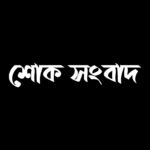
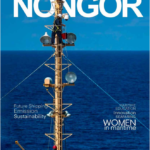
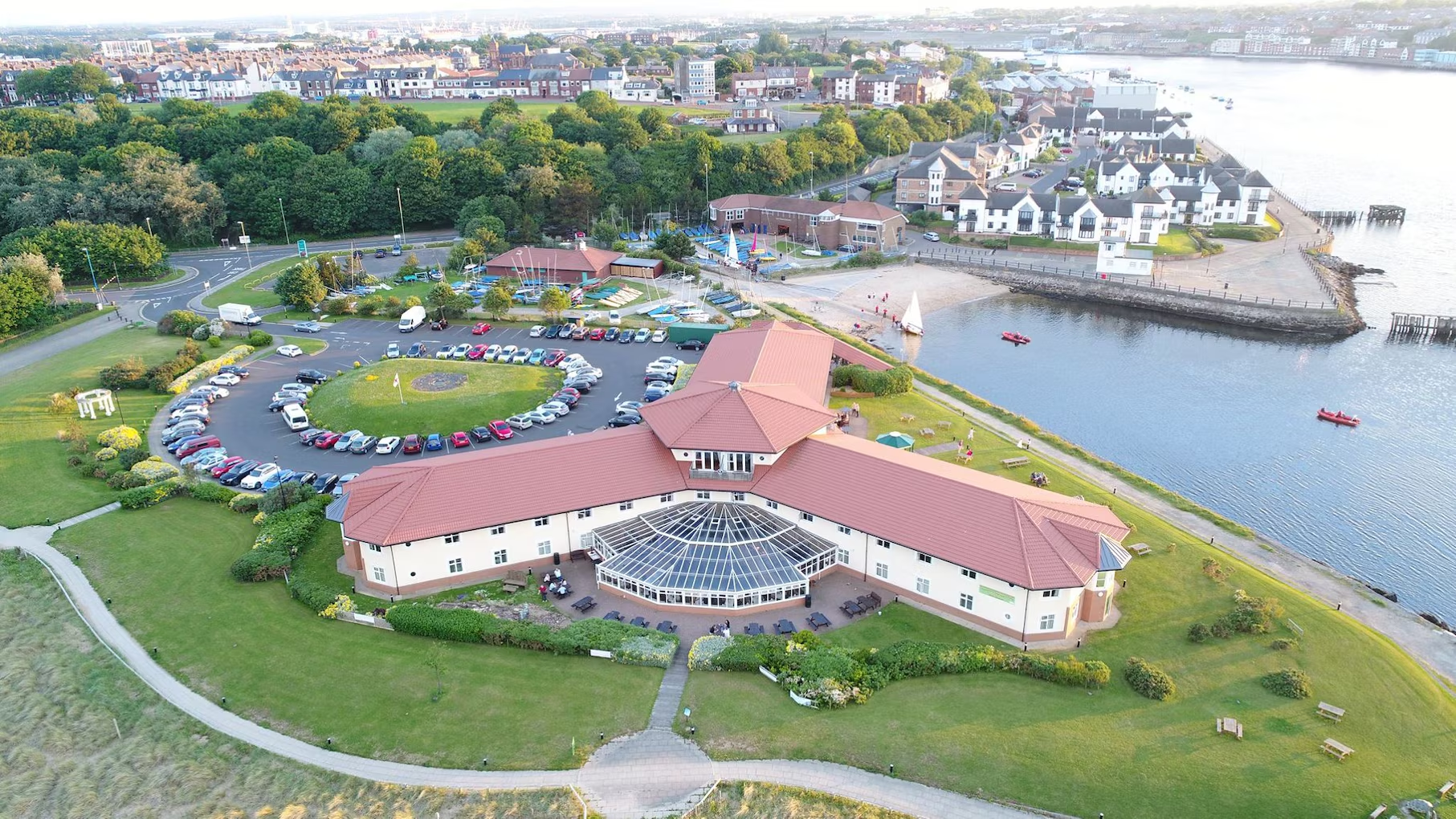
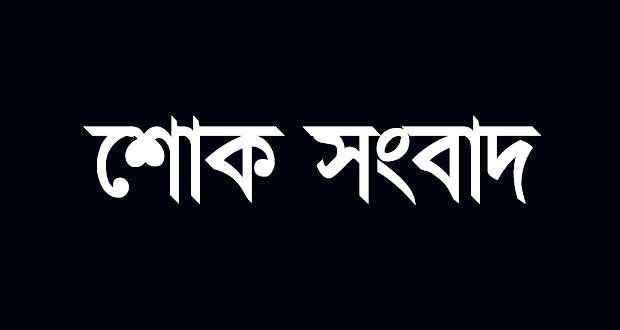



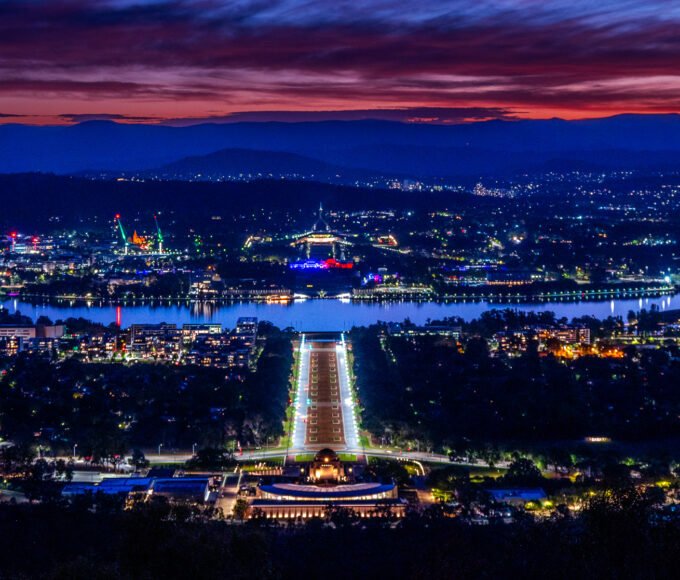
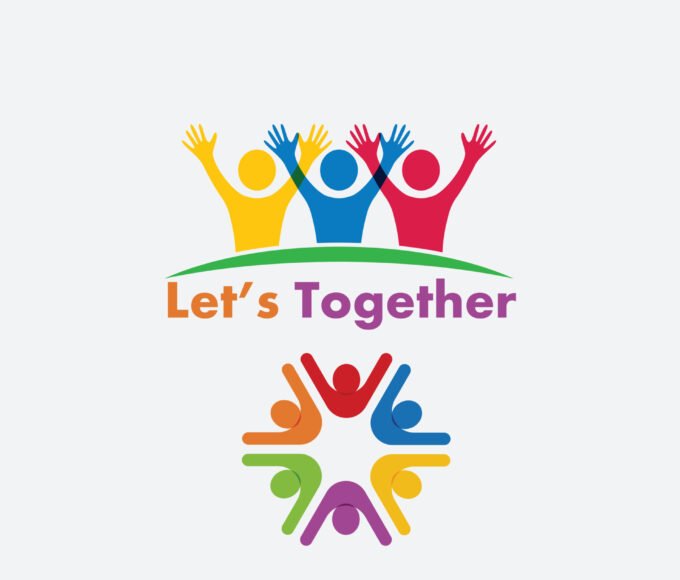
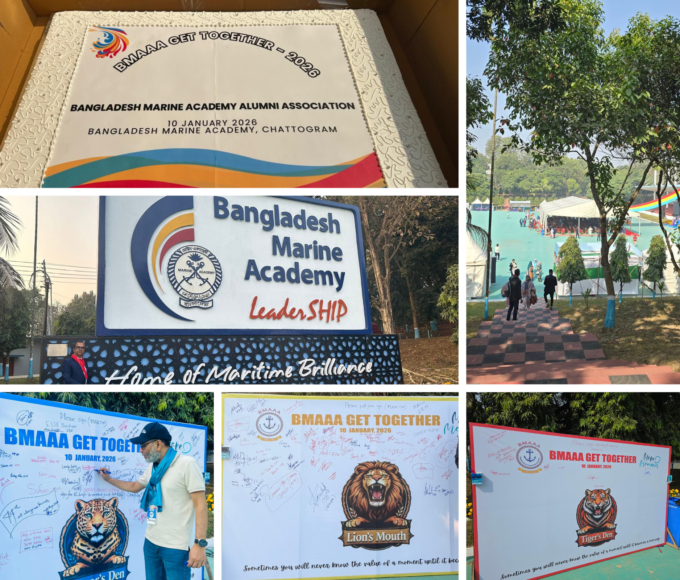




Leave a comment